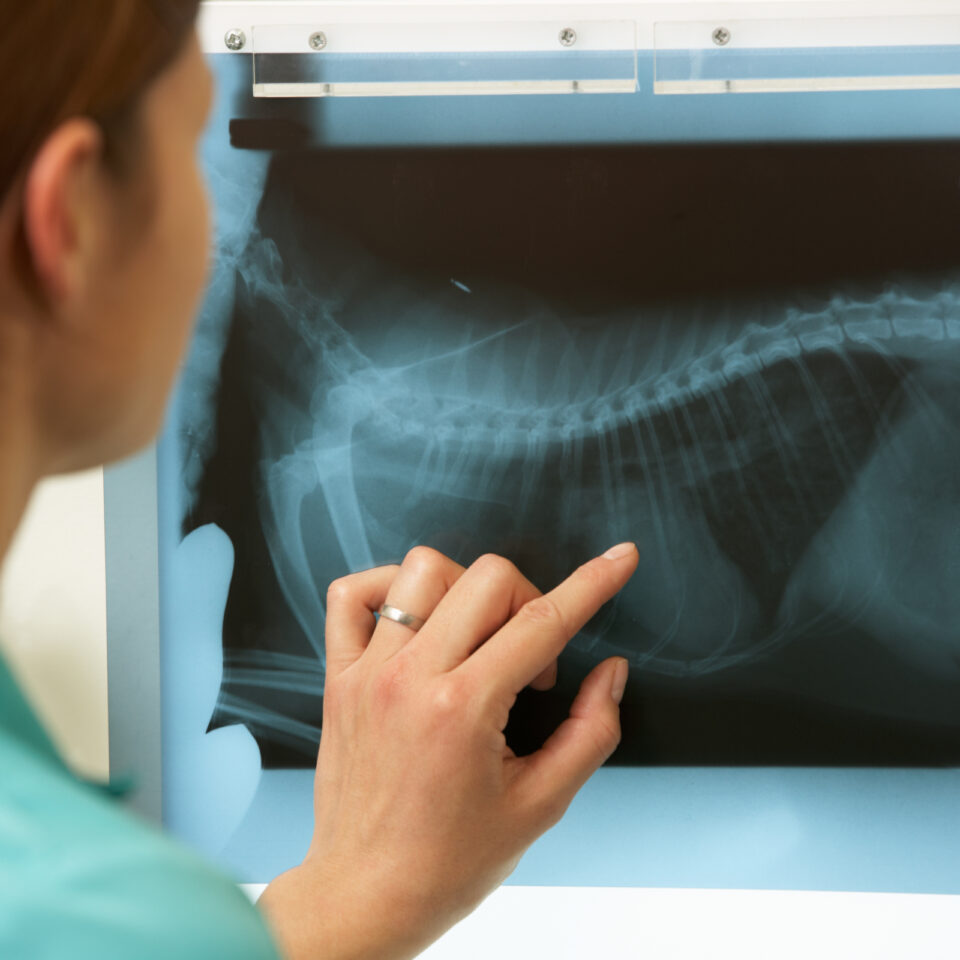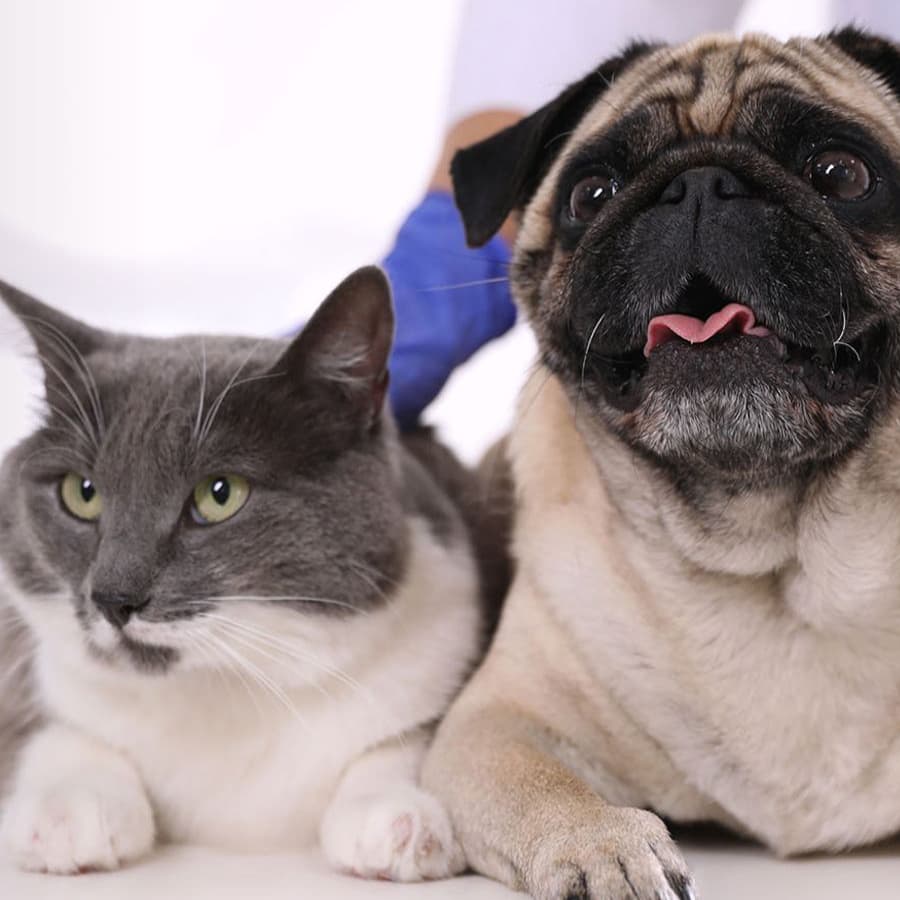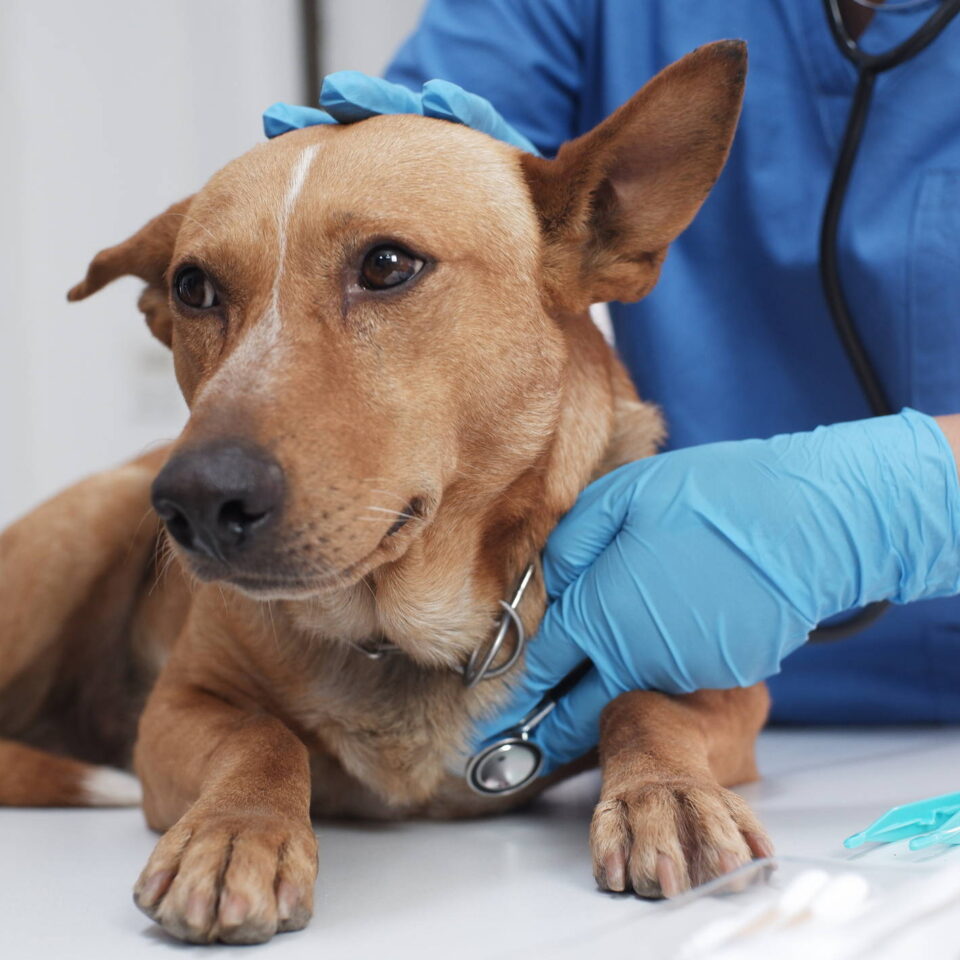Senior pet care

Older pets need ongoing care
Our senior pet care services support older dogs and cats by prioritizing their unique health needs. Above all, our Veterinarians go to great lengths to treat our senior patients and maintain quality of life and comfort.
Depending on breed and size, as early as age seven, pets benefit from biannual check-ups. These visits include a physical exam, blood work, and a review of medical history to detect any early health concerns.
Veterinary geriatric care for older pets:*
- Nutrition management & weight control
- Cognitive decline and behavioral changes
- Arthritis, joint & back pain
- Thyroid disease
- Kidney disease
- Heart disease
- Cancer
*Not a full list
Overall, our veterinarians focus on each senior pet’s well-being, ensuring they stay active and healthy through personalized care plans.


Nutrition and digestive health for senior pets
Aging pets often experience changes in digestion and may develop sensitivities, so managing GI health is essential for their comfort and longevity.
Choosing the best dog or cat food tailored for senior pets, with easily digestible ingredients and balanced fiber, helps reduce GI issues like constipation, diarrhea, or bloating. For instance, high-quality senior pet diets often include added probiotics and lower fat content to ease digestion, along with carefully balanced nutrients to support joint health, immunity, and energy levels, helping older dogs and cats feel their best each day.

Cognitive decline and behavioral changes
As pets age, they may experience cognitive decline, resembling conditions like dementia in humans. This can be made worse by decreases in other senses like vision and hearing that are common with aging. Symptoms include disorientation, memory loss, changes in sleep patterns, and difficulty following commands.
Behavioral changes, such as increased anxiety, irritability, or loss of interest in activities, can also occur. These issues impact a pet’s quality of life but can be managed with a combination of environmental enrichment, diet adjustments, treating underlying conditions and, in some cases–medication.
At West Creek Animal Clinic, we recommend regular check-ups so that we monitor and address these life changes effectively.


Arthritis, joint and back pain in pets
Arthritis and joint or back pain are common in aging pets, causing reduced mobility, stiffness, and discomfort. Dogs may limp, struggle with stairs, or avoid exercise. Cats, however, often show subtler signs like reduced jumping, grooming difficulties, or irritability.
Early intervention, including weight management, joint supplements, physical therapy, and medications, can significantly improve your pet’s quality of life, ensuring your pet stays comfortable as they age.

Thyroid disease
Thyroid disease affects a pet’s metabolism and overall health. In dogs, hypothyroidism (underactive thyroid) is most common, leading to symptoms like weight gain, lethargy, dry skin, and hair loss. Conversely, cats often develop hyperthyroidism (overactive thyroid), showing signs such as weight loss, increased appetite, hyperactivity, and vomiting.
Early diagnosis through blood tests allows effective treatment with medication, diet changes, or, in some cases, surgery. Above all, regular check-ups are vital to monitor thyroid health and maintain your pet’s well-being.

Kidney disease
Kidney disease is a common condition in senior pets that affects their ability to filter waste from the blood. Symptoms include increased thirst, frequent urination, weight loss, vomiting, and lethargy. However, early detection through bloodwork and urinalysis is crucial for managing the condition.
Similarly, treatments can include specialized diets, medications, and hydration support to slow disease progression and improve your pet’s quality of life.


Heart disease
Heart disease is a common concern in senior pets, affecting their ability to circulate blood effectively. Symptoms include coughing, fatigue, difficulty breathing, and decreased appetite. Early detection through routine exams and diagnostic imaging is crucial. Regular check-ups ensure that heart conditions are monitored and managed appropriately.
Paying attention to any changes in your pet’s activity level or breathing patterns, as these could be early warning signs of heart disease. Regular check-ups are essential for Geriatric pet care.


Services
We are committed to providing compassionate primary pet care for your pet, treating both of you with dignity and respect. Above all, our goal is to enhance the human-animal bond and ensure it thrives. Consequently, as Richmond and surrounding communities grow, we plan to expand our practice, adding skilled doctors and team members to meet increasing needs.











